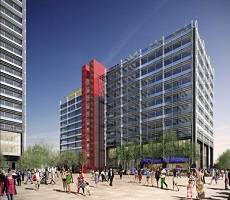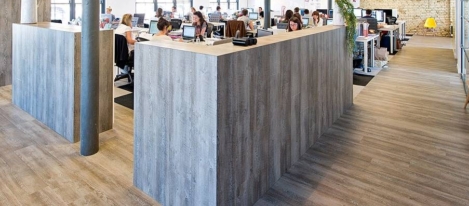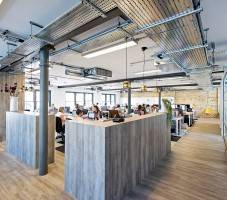July 19, 2015
Weekly Insight on gender pay, green buildings, agile working and more
 In this week’s issue; Mark Eltringham argues that the focus on a mythical gender pay gap, as repeated by the Prime Minister, obscures the real issues women (and a growing number of men) face; more evidence emerges to crush another myth, this time the one that equates the health impacts of sitting with smoking; the UK’s ‘greenest Government ever’ abandons its zero carbon buildings plans; Simon Heath questions the reported impact of robots on workplaces; Sara Bean on how firms are leaving remote working employees to fund their own kit; the under-reported and ongoing allure for employees of filthy lucre over flexible working opportunities; and the enduring suspicion of wearable technology in the British workplace. Subscribe for free quarterly issues of Work&Place and weekly news here, follow us on Twitter and join our LinkedIn Group to discuss these and other stories.
In this week’s issue; Mark Eltringham argues that the focus on a mythical gender pay gap, as repeated by the Prime Minister, obscures the real issues women (and a growing number of men) face; more evidence emerges to crush another myth, this time the one that equates the health impacts of sitting with smoking; the UK’s ‘greenest Government ever’ abandons its zero carbon buildings plans; Simon Heath questions the reported impact of robots on workplaces; Sara Bean on how firms are leaving remote working employees to fund their own kit; the under-reported and ongoing allure for employees of filthy lucre over flexible working opportunities; and the enduring suspicion of wearable technology in the British workplace. Subscribe for free quarterly issues of Work&Place and weekly news here, follow us on Twitter and join our LinkedIn Group to discuss these and other stories.


































July 14, 2015
Homeworkers left to fund their own technology by stingy bosses
by Sara Bean • Comment, Facilities management, Flexible working, News
(more…)